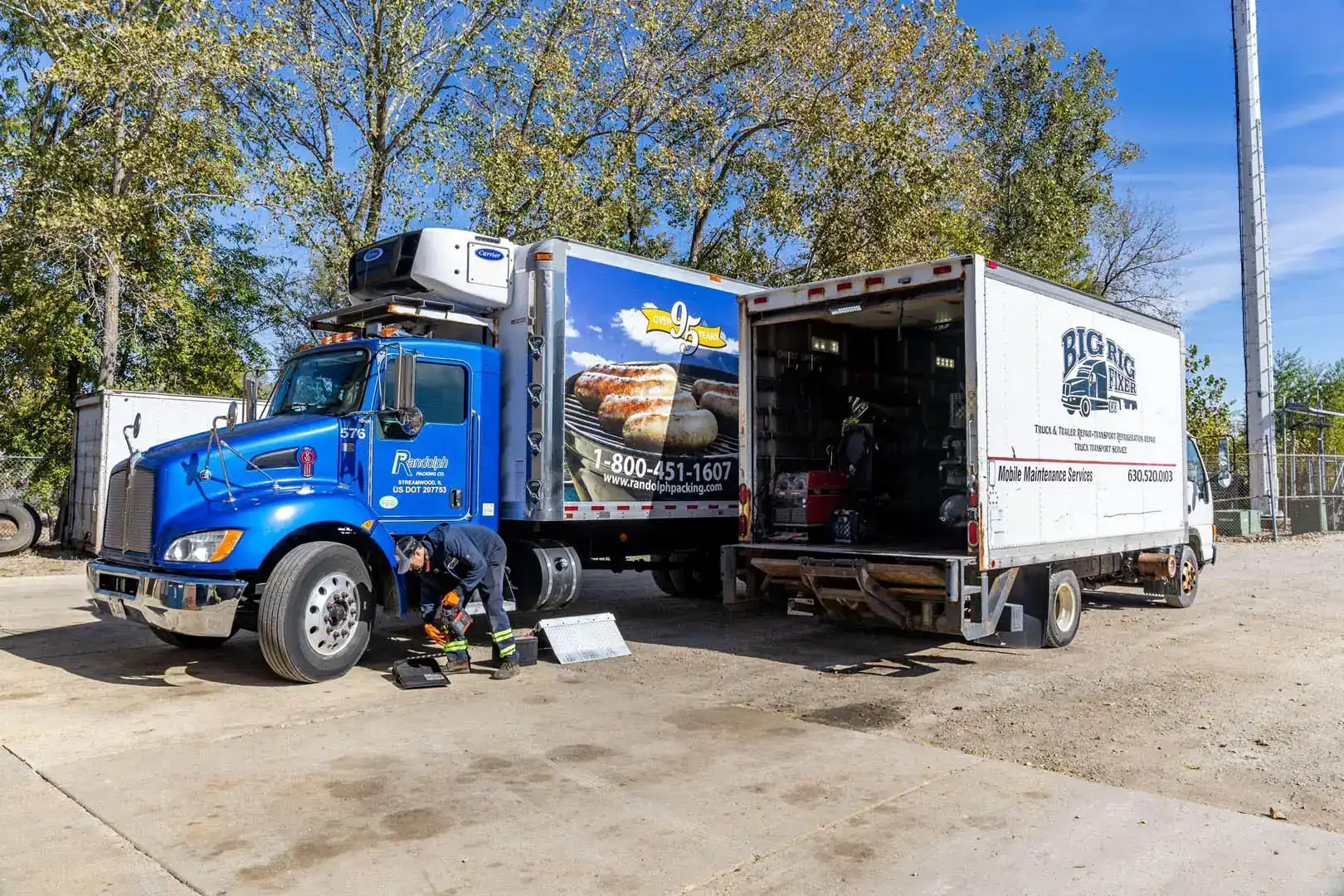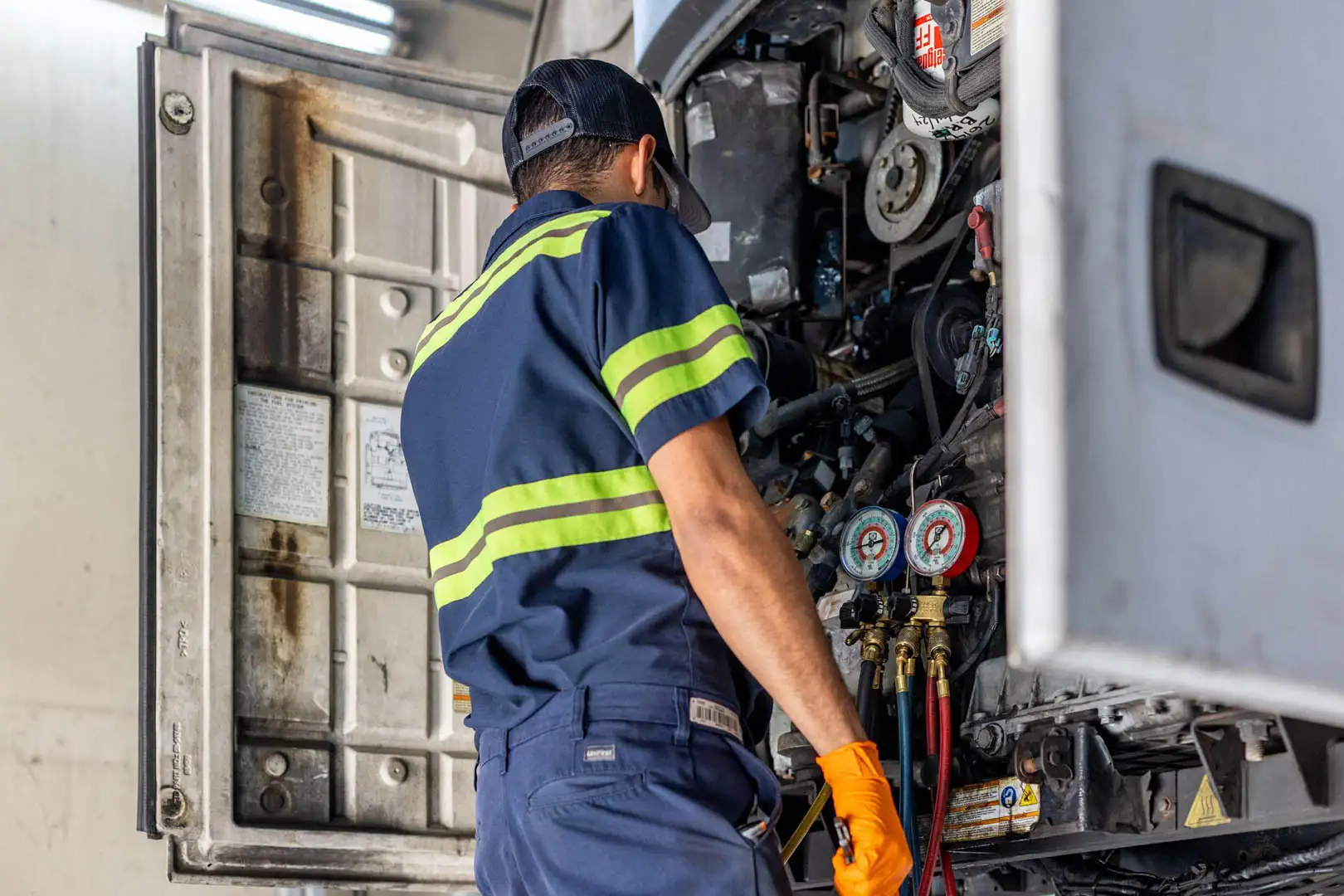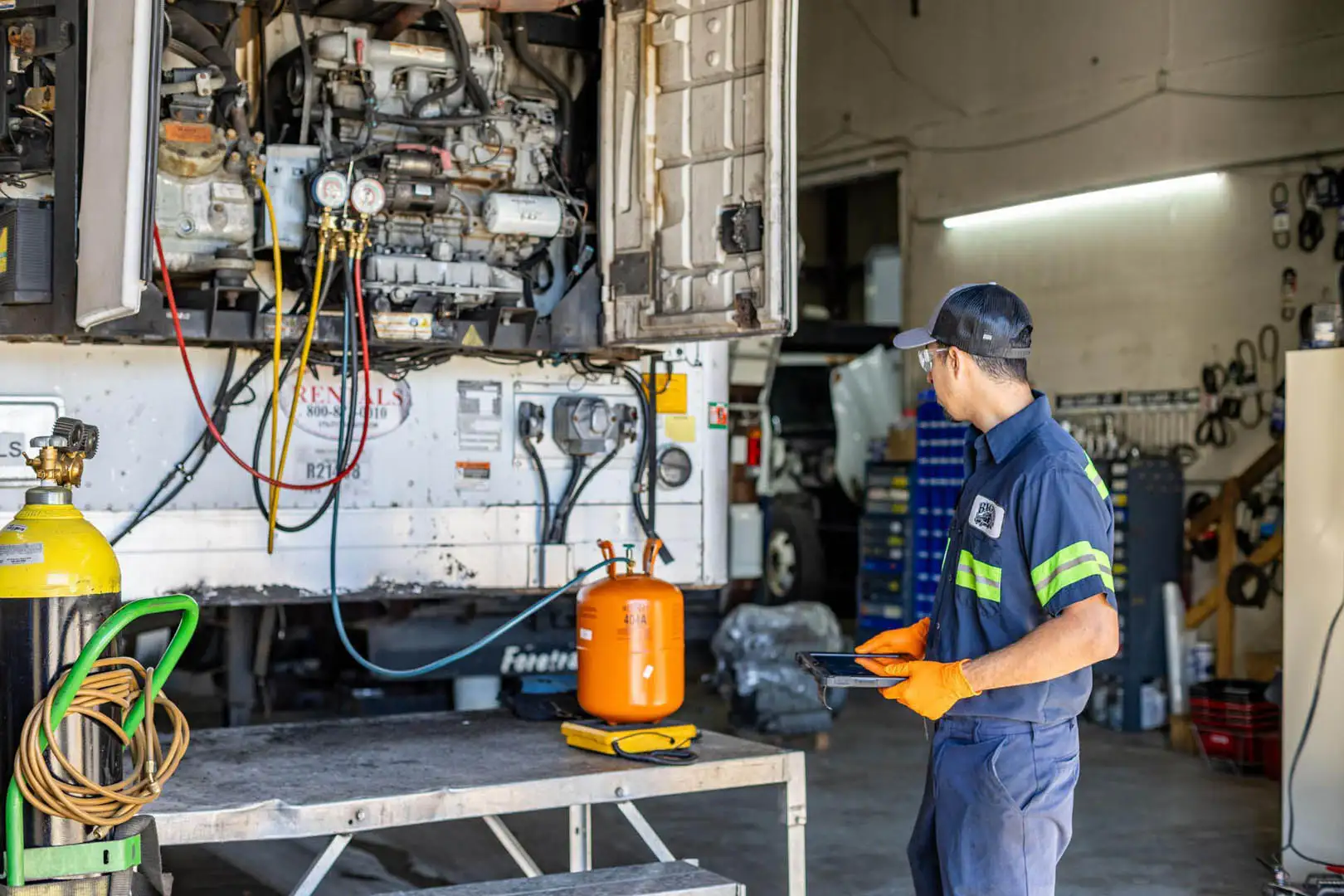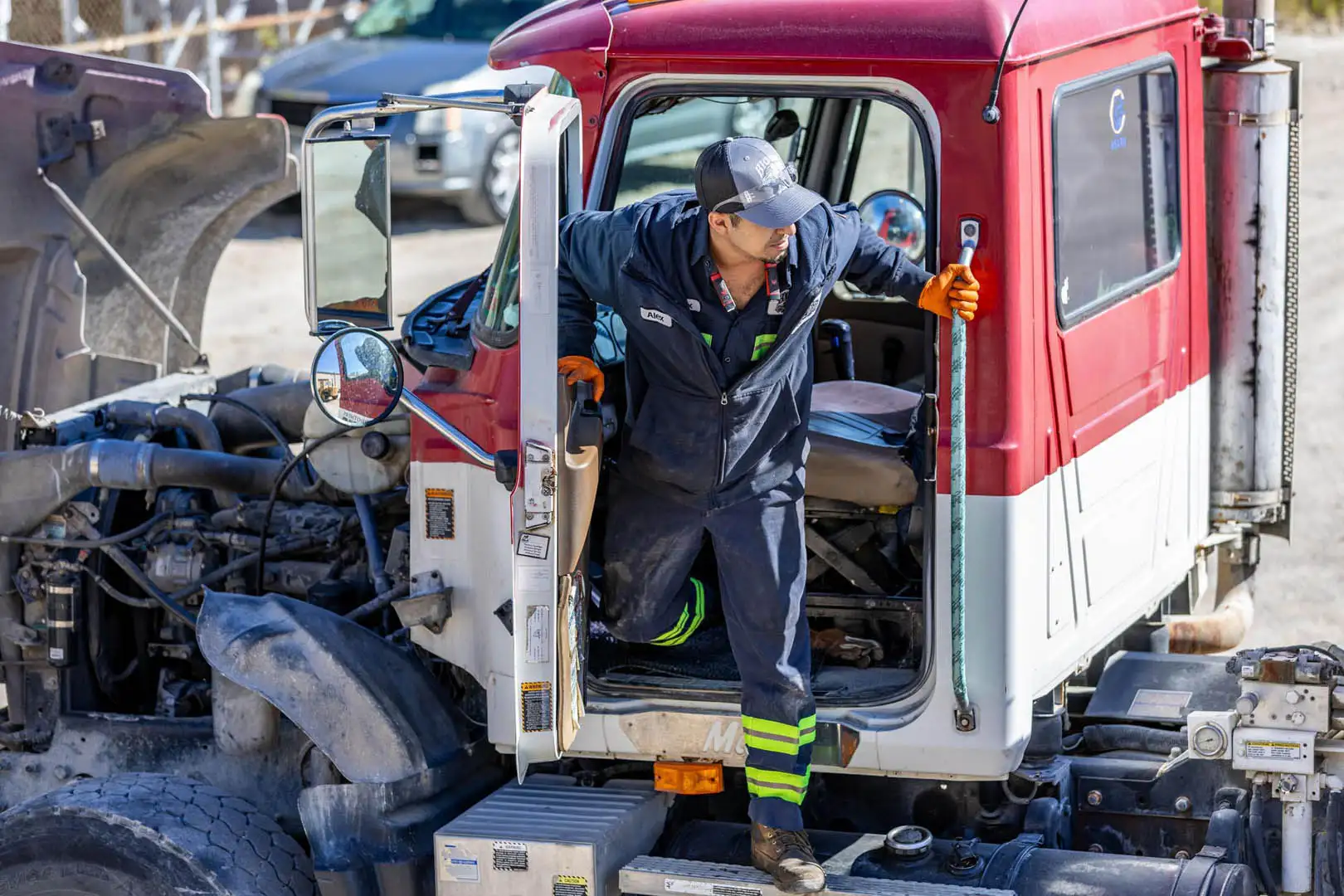Why Preventive Maintenance is a Big Deal for Semi-Trucks in the Chicagoland Area
Running freight through Carol Stream and Chicagoland means your rig takes a beating. This guide breaks down the essential preventive maintenance checks from brakes to after-treatment systems to keep you safe, compliant, and rolling without surprise breakdowns.

The Chicagoland area presents unique challenges for semi-trucks. From harsh winters and road salt to heavy traffic and constant stop-and-go driving, your rig faces conditions that accelerate wear and increase the risk of breakdowns. Preventive maintenance isn't just recommended it's essential for survival in this market.
Chicagoland's Unique Challenges
Extreme Weather Conditions
- Winter: Sub-zero temperatures, ice, snow, and road salt
- Summer: High humidity, extreme heat, and severe thunderstorms
- Spring/Fall: Rapid temperature swings and freeze-thaw cycles
Traffic and Road Conditions
- Heavy congestion on I-355, I-290, and I-294
- Frequent construction zones
- Stop-and-go traffic increasing brake wear
- Pothole damage from winter freeze-thaw cycles
Regional Compliance Requirements
- Illinois DOT inspections
- Emissions testing requirements
- Winter equipment regulations
- Hazmat transportation rules
Essential Preventive Maintenance for Chicagoland Operations
1. Brake System Maintenance
Heavy traffic and hilly terrain put extra stress on brake systems.
Monthly Checks:
- Brake lining thickness
- Air pressure system operation
- Brake chamber condition
- Adjustment and balance
Seasonal Focus:
- Winter: Moisture removal, anti-freeze levels
- Summer: Heat-related component inspection
2. After-Treatment System Service
Chicago's stop-and-go traffic can cause DPF and SCR system issues.
Regular Maintenance:
- DPF cleaning every 100,000-150,000 miles
- SCR system inspection
- DEF quality and level monitoring
- Sensor calibration and testing
Traffic-Related Issues:
- Incomplete DPF regeneration cycles
- NOx sensor fouling from idling
- Increased soot accumulation
3. Cooling System Protection
Extreme temperatures require enhanced cooling system maintenance.
Year-Round Checks:
- Coolant concentration testing
- Radiator and CAC cleaning
- Thermostat operation
- Fan clutch performance
Seasonal Preparations:
- Winter: Anti-freeze protection to -34°F
- Summer: Enhanced cooling capacity checks
4. Electrical System Maintenance
Road salt and moisture create electrical problems.
Corrosion Prevention:
- Battery terminal cleaning and protection
- Electrical connection inspection
- Wiring harness integrity checks
- Ground connection maintenance
5. Suspension and Steering
Poor road conditions accelerate suspension wear.
Critical Components:
- Shock absorber condition
- Spring and bushing wear
- Steering component play
- Alignment specifications
Preventive Maintenance Schedule for Chicagoland Operations
Daily (Pre-Trip) Inspections
- Brake system function test
- Fluid level checks
- Light and electrical system test
- Tire condition and pressure
- Air pressure system check
Weekly Inspections
- Detailed brake inspection
- Suspension component check
- Exhaust system inspection
- DEF level and quality check
- Battery and electrical system test
Monthly Service
- Oil and filter changes (as needed)
- Cooling system service
- Air filter replacement
- Fuel filter service
- Grease and lubrication service
Seasonal Preparations
Winter Prep (October-November):
- Coolant system winterization
- Battery cold-weather testing
- Tire changeover to winter compounds
- Heating system inspection
- Block heater testing
Spring Maintenance (March-April):
- Salt corrosion inspection and treatment
- Air conditioning system service
- Suspension and alignment check
- Comprehensive brake inspection
Cost-Benefit Analysis
Preventive Maintenance Investment:
- Monthly PM service: $300-500
- Seasonal preparations: $200-400
- Annual comprehensive inspection: $500-800
Breakdown Cost Comparison:
- Average roadside repair: $1,200-2,500
- Lost revenue per day: $400-800
- Towing costs: $300-800
- DOT violation fines: $200-1,000+
ROI of Preventive Maintenance:
- 35% reduction in unexpected breakdowns
- 25% lower overall maintenance costs
- 15% improvement in fuel efficiency
- Extended vehicle lifespan
Local Resources and Support
Big Rig Fixer Advantages:
- Local knowledge of Chicagoland conditions
- Strategic Carol Stream location
- Emergency support
- Fleet-specific maintenance programs
- DOT compliance expertise
Service Network Benefits:
- Reduced travel time to service locations
- Familiar with local operating conditions
- Established parts supply chains
- Relationships with local fleet operators
Technology Integration
Fleet Management Systems:
- Automated maintenance scheduling
- Real-time vehicle monitoring
- Predictive maintenance alerts
- Cost tracking and reporting
Telematics Benefits:
- Engine fault code monitoring
- Driver behavior tracking
- Fuel efficiency optimization
- Route optimization for reduced wear
Compliance and Safety
DOT Requirements:
- Annual inspections mandatory
- Brake system compliance
- Emissions system functionality
- Safety equipment requirements
Insurance Benefits:
- Reduced accident risk
- Lower insurance premiums
- Improved safety scores
- Fleet safety recognition programs
In the demanding Chicagoland market, preventive maintenance isn't optional it's your competitive advantage. Partner with Big Rig Fixer to develop a maintenance program that keeps your fleet profitable, compliant, and ready for whatever Chicago throws at it.


